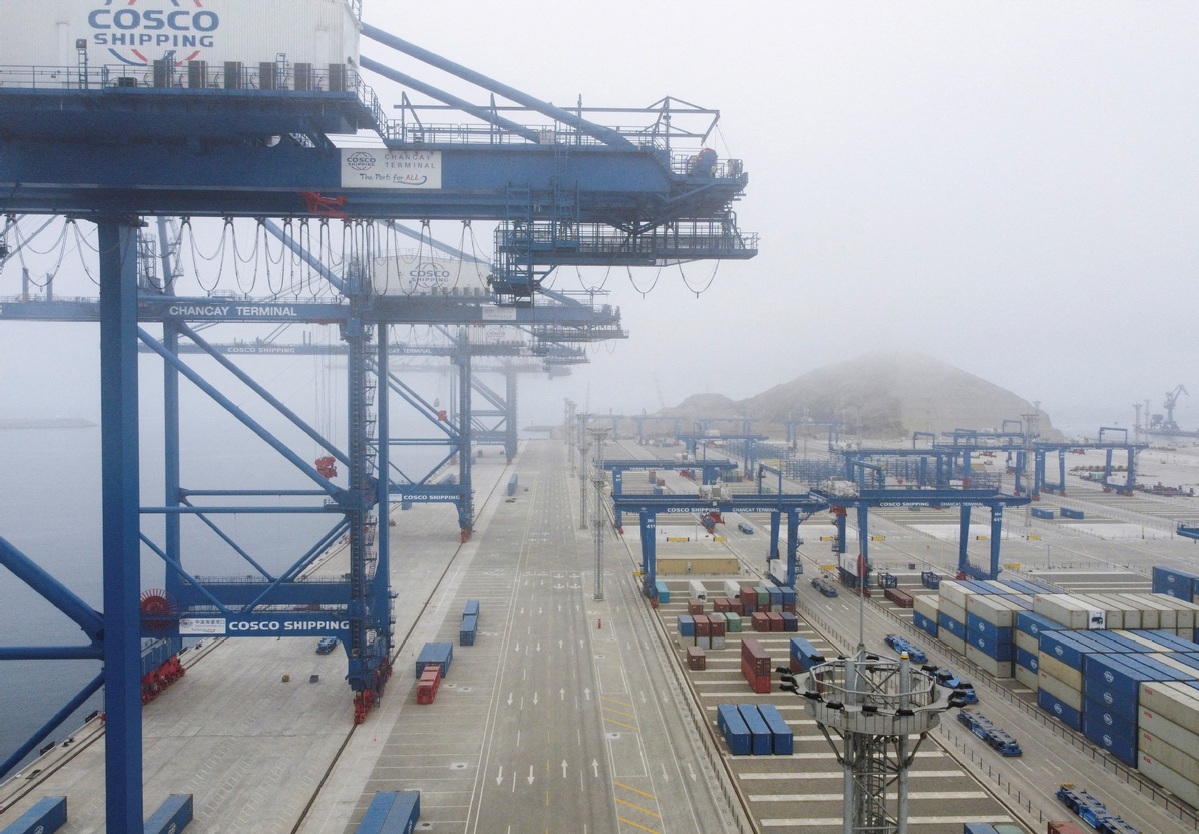Port fees, another foot-shooting proposal: China Daily editorial


China is a major player in the global maritime sector. That the United States has now turned its fire on China's shipbuilding and maritime shipping sector is another indication that the US administration is relentlessly intensifying its bid to suppress China's development.
In a move that is expected to create chaos in the world ocean shipping industry, and hugely disrupt global trade flows and supply chains, the administration has proposed steep new fees on Chinese-built and Chinese-operated ships docking at US ports.
US President Donald Trump is reportedly drafting an executive order that would impose fees on any vessel that enters a US port, "regardless of where it was built or flagged, if that vessel is part of a fleet that includes vessels built or flagged in the PRC". The US would also impose tariffs on Chinese cargo-handling equipment, according to the draft order.
The document draws from a US Trade Representative's Office proposal last month to levy fees of up to $1.5 million on Chinese-built vessels entering US ports after an investigation by the USTR concluded that China has been using "unfair policies and practices" to dominate the shipbuilding industry and global maritime and logistics sectors, which "burdens or restricts US commerce".
But China's shipbuilding industry has led the world for more than a decade in terms of shipbuilding completion volume, new orders received and backlog orders, thanks to the country's complete industry chain, strong manufacturing capability, and breakthroughs in technological innovation. The advancement of the 21st Century Maritime Silk Road has given additional momentum to the fast growth of its shipbuilding industry.
The US, on the other hand, has seen its ranking in commercial shipbuilding decline from No 1 in 1975 to 19th. As former trade representative Katherine Tai bemoaned, the US builds "less than five ships each year, while the PRC is building more than 1,700 ships."
Yet it is nonsensical to attribute the US' competitive failure to so-called unfair practices by China. The US' claims that the country "displaces foreign firms, deprives market-oriented businesses of commercial opportunities, and creates economic security risks" are groundless and instead reflect the "tough-on-China" strategy the US has adopted because of its peer pressure anxieties.
The World Shipping Council estimates the USTR's proposed port fees "could add $600-$800 per container" with the additional costs to be inevitably passed on to the end consumers, which means it is the US businesses and consumers that will have to pay the price of increased shipping costs. They are also likely to push inflation higher and further harm the US economy, which is already suffering the self-inflicted wounds from the administration's wanton weaponization of tariffs.
According to the WSC, the fees, if imposed, would amount to an additional tax on US consumers of up to $30 billion annually.
It is unrealistic for the US administration to expect that the US will be able to exclude Chinese-built ships from its ports without hurting the US' own trade interests, or for potential ship buyers to switch to non-Chinese shipyards to avoid the costs proposed by the US, given that Chinese shipbuilders account for more than half of all merchant vessel cargo capacity produced globally each year.
There is also the question of whether the administration will impose the fees on a US entity that owns or operates a US-flagged vessel built in China, or US operators that have purchased ships from Chinese shipyards. Not to mention that the move may also violate the US' Friendship, Commerce, and Navigation treaties.
If the US pushes ahead with its planned port fees, the damage will be multiple times that caused by the disruptions to commercial shipping in the Red Sea due to attacks on merchant ships by Yemen's Houthi militants last year. The US can also expect China taking countermeasures to safeguard its own shipbuilding industry's legitimate rights and interests.
The US really should think twice before resorting to yet more hooliganism to try and gain a competitive edge.


































